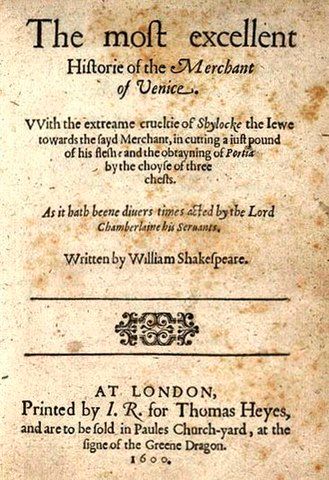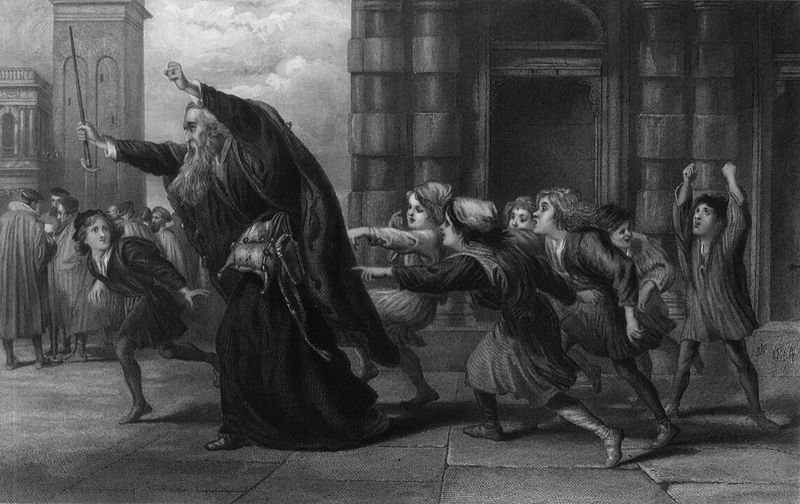Venezia, the city of romance, canals and history, is also the backdrop to one of Shakespeare’s most complex plays: The Merchant of Venice.
A story that gets to the heart of justice, mercy and human relationships, Shakespeare’s play brings a host of characters to life. Each one is carefully constructed to embody the moral and social dilemmas that fill the streets of Venice.
In this article we’ll be looking at the merchant of venice character list, who they are, what they want and why they matter to the story.
We’ll answer who is the real merchant of venice character, look at Shylock in depth and summarise this classic play. Whether you’re a Shakespeare fan or just curious about his work you’ll find something to like.
Merchant of Venice Character

At the heart of The Merchant of Venice are the characters. Antonio, the melancholy Venetian merchant is at the centre of the play.
Then there’s Shylock, the mysterious jewish moneylender who is all about revenge and greed but also gets our sympathy. Portia, the clever and resourceful heiress brings elegance and brains to the courtroom and Bassanio adds romance and ambition.
Through these characters Shakespeare has created a timeless play that still works today. Each one with their flaws and complexities makes this one of his best plays.
Who is the Main Character in Merchant of Venice?
The answer to this depends on who you ask. Some will say it’s Antonio, the title character, while others will argue it’s Shylock, the jewish moneylender.
Antonio’s fate, particularly the pound of flesh, is central to the plot but it’s Shylock who gets our attention with his character and tragic fall.
Shakespeare’s magic is in getting us into the heads and hearts of his characters so much so that who is the main character feels subjective. Portia also plays a key role, orchestrating the climax of the story with cleverness and resolve.
Who is the real Merchant of Venice?
Although Antonio is the merchant of the title, there’s a deeper question here. Shakespeare’s Merchant of Venice could also be seen as Shylock, whose profession as a jewish moneylender is the source of most of the tension in the play. Both men, representing different aspects of the mercantile world, are in a dance of business and personal conflict.
But it’s Antonio, the generous merchant, who lends money interest free to help his friend Bassanio woo Portia and it’s he who faces the deadly consequences of Shylock’s bond. The conflict between these two becomes a microcosm of the social and religious tensions in Venice.
What’s the moral of Merchant of Venice characters?
The Merchant of Venice raises complex moral questions. The play is about justice, revenge and mercy. Shylock the jewish moneylender wants revenge against Antonio for a lifetime of personal slights and public humiliation.
Antonio on the other hand relies on his Christian values, believes he’s acted with a clear conscience but his actions are not prejudice free.
In the end Shakespeare’s message is about mercy and particularly in the famous courtroom scene where Portia disguises herself as a lawyer. She says “The quality of mercy is not strained; It droppeth as the gentle rain from heaven upon the place beneath”. Through her words we are reminded that mercy is a divine virtue, an earthly power that is at its strongest when it’s not forced.
While Shylock’s fate may seem harsh, the moral of the play is whether justice without mercy is justice at all? It also challenges us to question our own prejudices and assumptions about other human beings.
Shylock Character sketch in 100 words
Shylock is a vengeful jewish moneylender who has been wronged by Antonio and the Christian characters of Venice. He seeks revenge through a bond demanding a pound of Antonio’s flesh if the loan is not repaid.
Despite his harsh exterior Shakespeare humanises Shylock by showing his pain and isolation. His famous speech “Hath not a Jew eyes?” asks us to see him as a human being, a human being who becomes consumed by his desire for revenge. Shylock is complex, both the victim and the villain, a sympathetic and flawed character.
Merchant of Venice summary
Set in Venice this Shakespearean play is about Antonio, a rich merchant, and Bassanio, his friend, who borrows money from Shylock to woo the wealthy Portia. Shylock has a long standing grudge against Antonio and demands a strange bond: if the loan is not repaid he’ll take a pound of Antonio’s flesh.
As Bassanio wins Portia’s hand the drama shifts to the courtroom where Shylock demands his payment. Disguised as a male lawyer Portia intervenes and saves Antonio with a clever argument. The play ends with Shylock being forced to convert to Christianity and the lovers of Belmont living happily ever after.
Jewish Moneylender: Shylock and his role
Shylock as the jewish moneylender has a special place in the story. While we see him as the villain there is depth to his character.
Shakespeare didn’t write him as a caricature but as a man consumed by rage against the Christian characters of Venice. His complicated relationship with his daughter Jessica who betrays him by marrying the Christian Lorenzo adds to his emotional turmoil.
When Shylock demands the bond, demanding a pound of Antonio’s flesh we see that his desire for revenge has clouded his better judgment. Yet in his famous speech “Hath not a Jew eyes? Hath not a Jew hands?” Shylock asks us to see him as a human being, to reconsider the label of “villain”.
Shylock’s Daughter Jessica
Jessica is one of the tragic characters in The Merchant of Venice. As Shylock’s daughter she is caught between her loyalty to her father and her love for Lorenzo, a Christian. Her decision to elope with Lorenzo and steal from her father is an act of rebellion and desperation, she wants to escape the confines of her father’s strict household.
Although Jessica marries Lorenzo she decides to convert to Christianity and leave her jewish roots behind, her betrayal of Shylock adds to the family and cultural conflicts of the play.
William Shakespeare wrote: A timeless genius
Written 1596-1599 The Merchant of Venice shows Shakespeare’s ability to get inside the human head. Through his characters he presents a Venice that reflects the social, racial and economic tensions of his time.
The Merchant of Venice as a romantic comedy but as a multi layered exploration of what it means to be human, to be wronged and to seek justice or mercy.
Save Antonio: The trial
The trial is the climax of the play. Antonio’s fate seems sealed as Shylock demands his pound of flesh. Portia as a lawyer steps in and saves Antonio with a clever legal argument.
She says Shylock is entitled to the flesh but not to Antonio’s blood so the contract is impossible to fulfill. Shylock’s downfall is complete when he is forced to convert to Christianity, a fate that leaves him broken and humiliated.
Antonio’s Flesh: A symbol of justice and revenge
The contract of taking Antonio’s flesh is one of the most symbolic elements of the play. For Shylock it’s the ultimate act of revenge against a man who has wronged him for years.
But this demand also highlights the play’s theme of justice vs revenge. Antonio’s flesh becomes a grotesque metaphor for the cost of hate and how far someone will go for revenge.
Antonio’s Ships and the stakes of friendship
At the beginning of the play Antonio’s ships are at sea, full of goods that represent his wealth and livelihood. His financial risk is mirrored in the personal risk he takes for his friend Bassanio, he puts his life on the line to help his friend borrow money from Shylock.
The ships are a metaphor for the uncertainty and precariousness of life in Venice where fortune can change as quick as the tide.
Portia: The Lady of Belmont
Portia the witty and intelligent heiress of Belmont is one of the strongest female characters in the play. Though bound by her father’s will which dictates that her suitors choose between a gold, silver or lead casket to win her hand she is still a symbol of beauty and wit. Her disguise as a lawyer in the courtroom not only saves Antonio but also shows her resourcefulness.
Portia’s prince suitors and the casket test are metaphors for the difference between outward appearance and inner worth. In her famous mercy speech Portia states one of the play’s main themes: the need for compassion and understanding in a world of legalism and revenge.
Bassanio: The romantic hero
Bassanio is a young Venetian nobleman and Antonio’s best friend who borrows money from Shylock to pursue Portia. He’s sometimes criticized for being a bit reckless but Bassanio’s pursuit of love adds a romantic layer to the play. His success in choosing the right casket and winning Portia’s hand ties the comedy of the play to the darker Venetian plot.
Merchant of Venice character: Human beings in a mercantile world
In The Merchant of Venice Shakespeare presents a world where financial transactions are personal and moral. The Venetians are a complex mix of money, love, justice and revenge. As we get to know the merchant of venice character list we see how well Shakespeare understood human beings – our desires, our flaws and our search for meaning.
Whether it’s Shylock’s cry for justice, Portia’s plea for mercy or Antonio’s quiet suffering The Merchant of Venice is a rich and thought provoking play that makes us feel for characters who are at once villainous and vulnerable.

